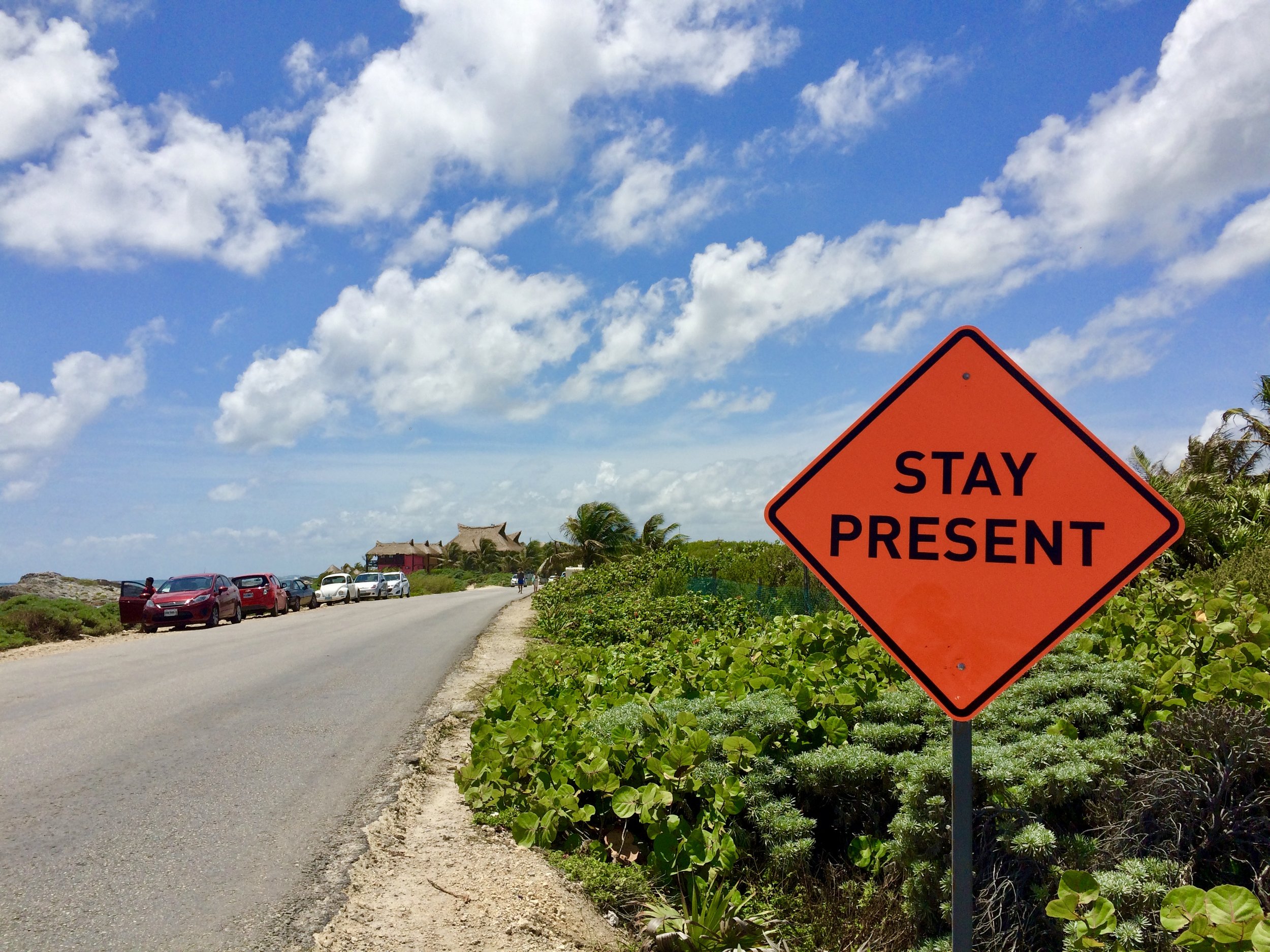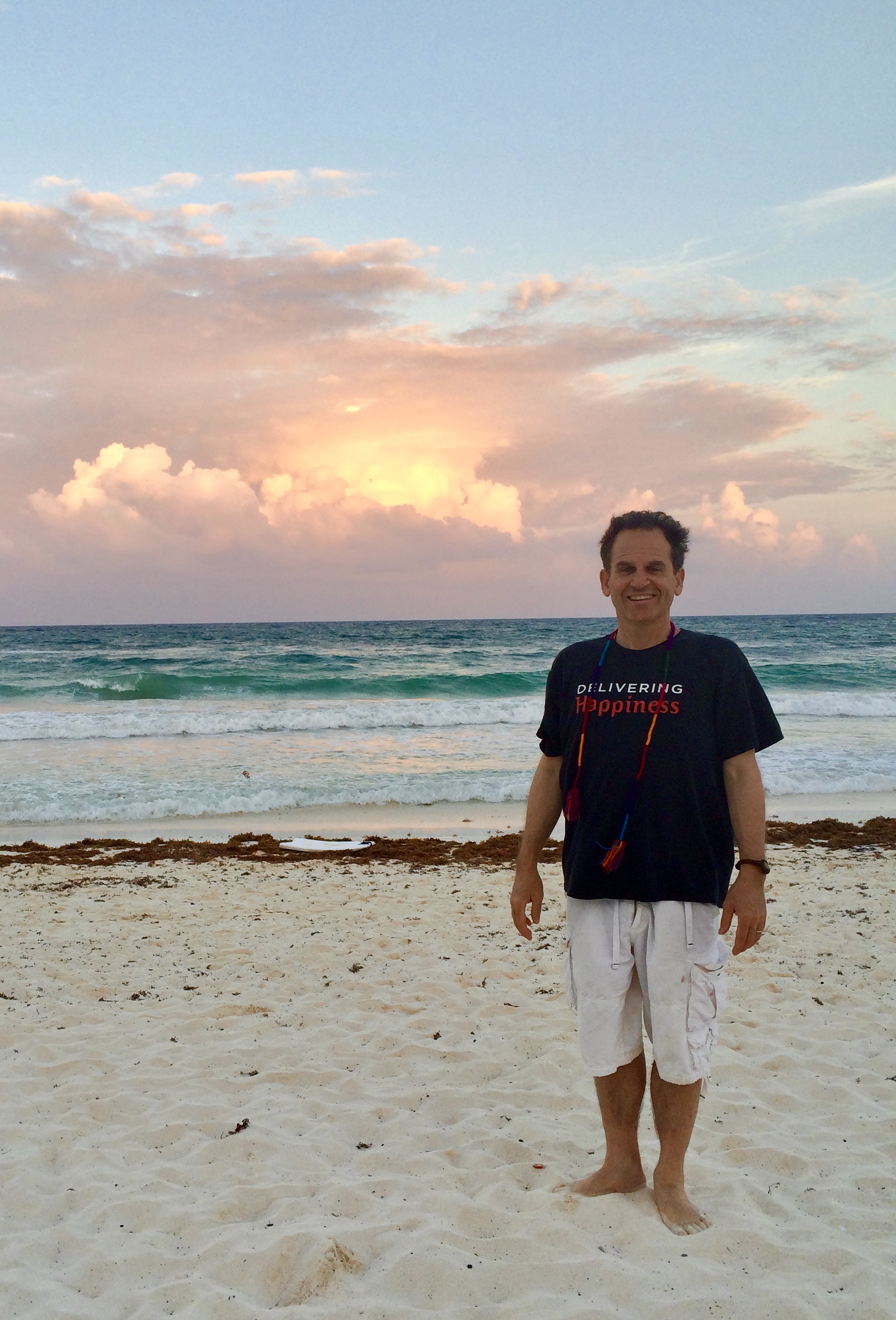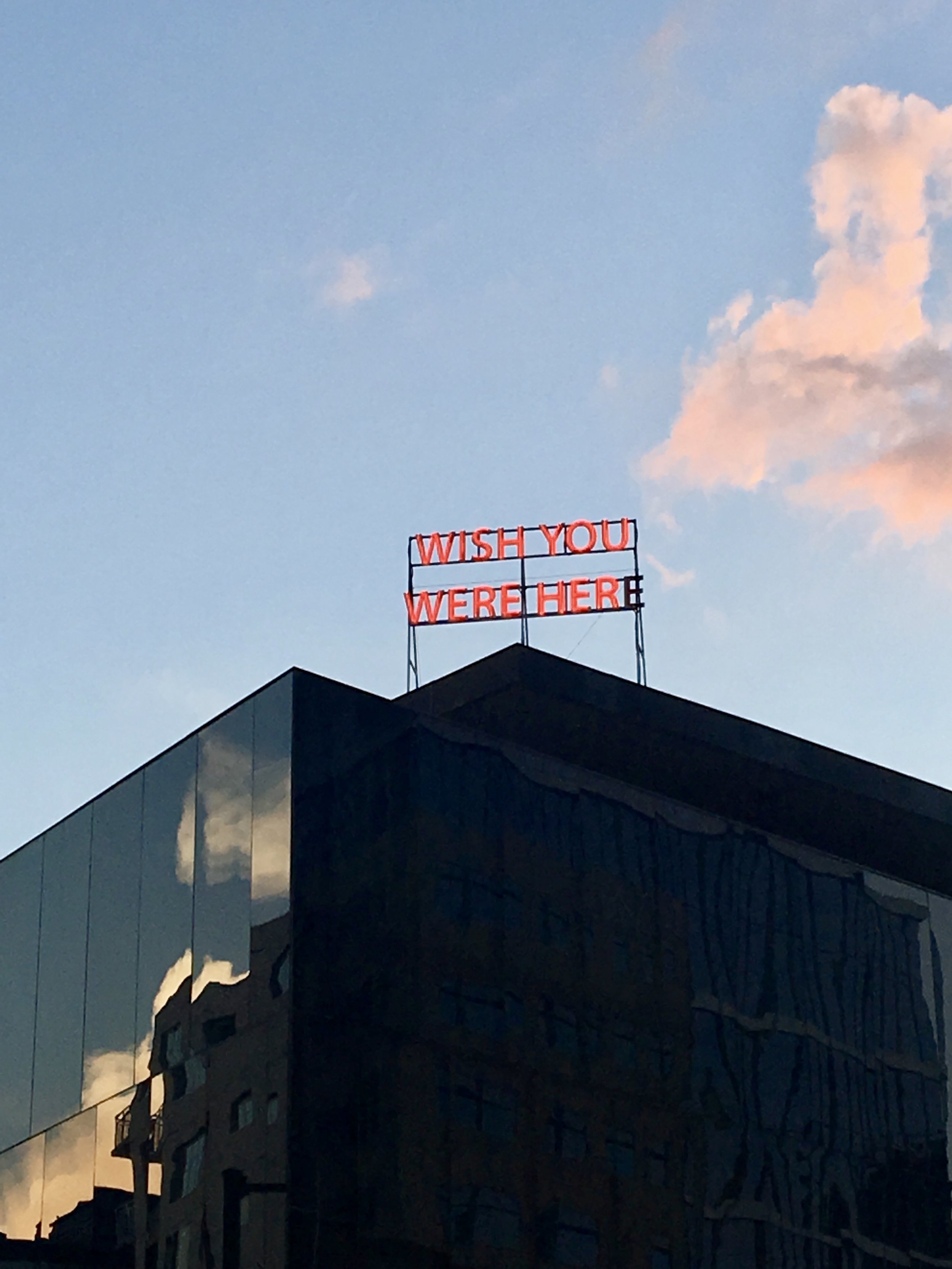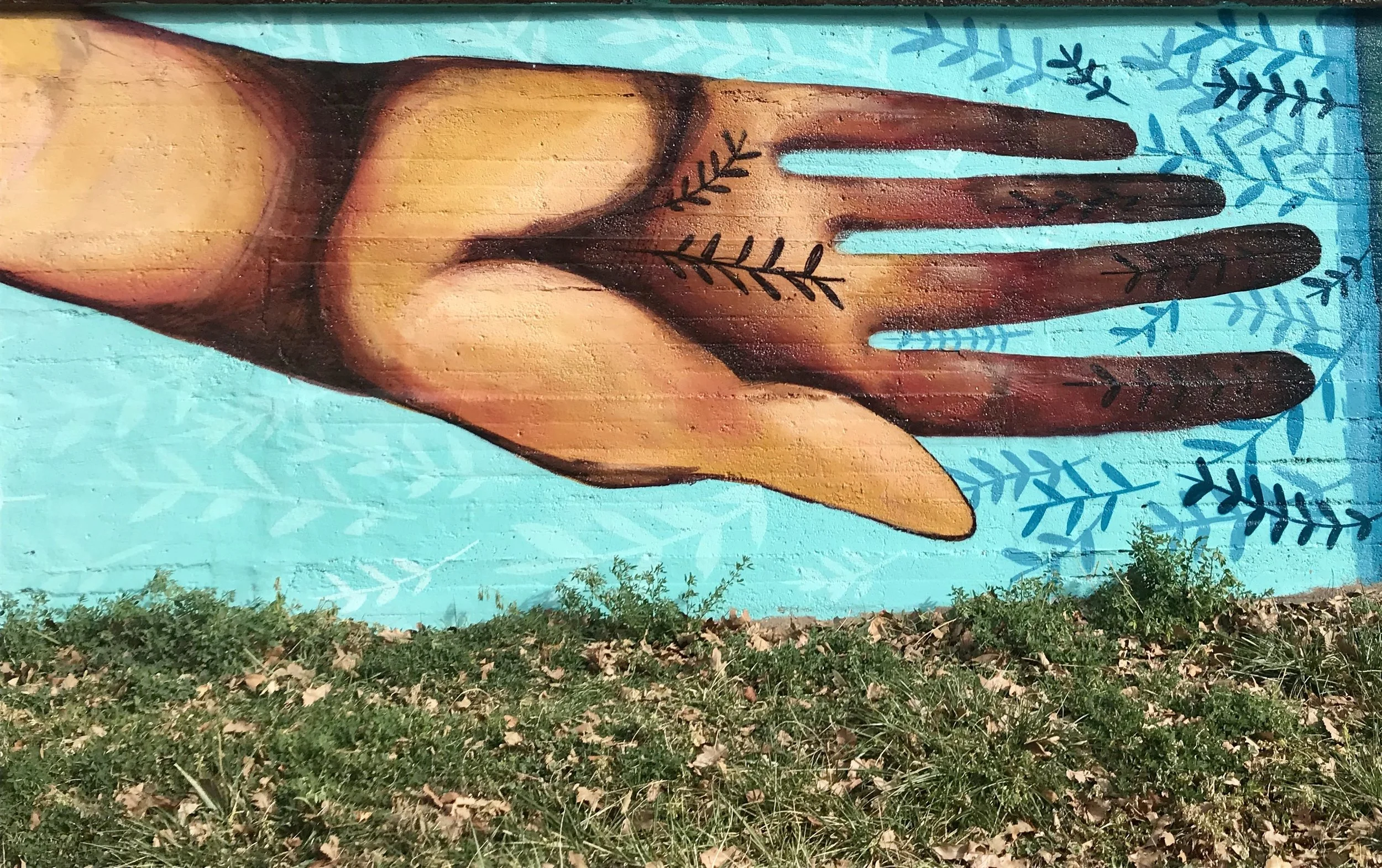
Some things personal, some things good for you,
and some overall great things.
Mike's Story
Has to be told. And yes, he died by suicide.
Now that that’s out of the way, I am going to figure out how to tell (enough of) the story.
Some people won’t approve. I didn’t ask anyone’s permission or guidance, as there are so many reasons the story should not and would not be told. But it has to be. I could try to describe the constant barrage of emails and phone calls and even worse, the people that don’t email or call. They ask each other and they wait, dealing with their own confused grief. But everyone wants to know.
It’s instinctive to want to know, I guess. Survival instinct.
It’s love, too. People are concerned, want to know if we are going to be ok.
It’s learning. Our psychology community deserves to learn and grow and grieve themselves. Everyone he touched deserves to learn from this.
It’s concern for everyone else. Like, if you know someone with depression, how worried should you be? What signs will there be? What can you do to prevent it? I can only attempt to answer.
It’s probably a little voyeurism, too. I really don’t care. I don’t care about that because I exist in a parallel universe in which things like privacy or “image” are just distant memories of a normal life. But this will never be normal.
Before jumping in, here’s just a few reasons why NOT to tell the story:
Mike had a lot of patients, and I don’t know their stories. Some were young, and some were dealing with their own depression and maybe even suicidality. We all know that people are vulnerable to giving in when they see that others have done the same, especially people they really admire. Still, the most important part of this is the education around it (for example, look up whether more people really did follow through with suicide after Kurt Cobain died, and how the community rallied to support and educate people and it worked). I could also argue that Mike wanted people to know, even his clients. This one doesn’t hold up, though, because he wasn’t making sense at that point. Still, he was decidedly NOT wanting this to be kept private. He insisted on being authentic, even at the end.
This will affect how some people see me professionally. I also don’t worry about that. I remain good at my job, or, sadly, better. I certainly don’t need clients, and I am not looking for attention or sympathy, I get plenty of both. To be honest, it would be a lot easier to try to sweep this under a rug, if only there were a rug that big.
Also, my kids... they deserve their own story. They deserve to bury the story, too, if that would be more convenient for now. They are finally starting new experiences (camp, school) where people don’t already know the story, and how refreshing is that? Unfortunately, it’s also not true or fair. People will know the story, and they will tell it to each other in hushed tones, and feel shocked and sad and maybe even scornful but without the right information. Parents might need to decide whether and how to talk about it with their children, or even whether to let their kids hang out with my kids. After Mike died last summer, we had a few weeks to figure out a strategy for school. I sent an email to the classrooms my kids would enter. After having grappled with the tragedy for weeks on their own, I heard from so many parents how grateful they felt that I had reached out to them in this way, to give them just a little information and language to prepare them. This is what I said:
Fifth grade families,
I wanted to add a little to the email you received about Mike and our family. I want you to know it obviously pains me greatly to lose Mike and to such tragic circumstances. I know that each family will need to deal with this in their own way. I don't have any script, so please do what is best for your family. I have some families telling their kids about Mike's death but not offering any other specifics to their kids. I have other families telling their kids it was an accident or a health issue. I really don't judge anyone's decisions, and obviously some people will have different needs regarding their religions, their own kids and what each parent might know about their kids' own worries/life perspective, etc. Believe me, it occurred to me it would be easier not to tell my kids the truth, but in the end, I knew I didn't have a choice with my kids. But please handle this however you would like.
I don't really think that [my kids] are going to advertise their situation. But they are also getting accustomed to speaking about it directly when appropriate. Mostly, they just want to have a normal life and normal interactions with their friends. It has helped to see a friend here and there to acclimate. I think they will like to just get back with their daily life as soon as is remotely possible. We are inviting letters/cards just as a way for kids to feel they can do something tangible, if that is healing for them.
In the last few weeks, [my kids] have come closer together than ever, and their love and friendship for each other is truly a gift to us at this time. But at times, they are quick to moods and a little snappy with each other. I mention this just because I would love for our already awesome community to help me parent at this time. For any parents who really know me, I will never be defensive if you share observations with me about things they do or say. So by all means, if something comes to your attention, feel free to shoot me an email.
For those of you who are actually going to tell your kids what happened, I will just let you know that we are telling our kids that Mike was very sick, depression is a real disease, and in the end, it took his life the way that cancer might infect a person's cells or brain. I also get a lot of questions because Mike seemed fine to other people, so some kids worry that if Mike could do this, could this happen to just any parent. I think it is fine/fair to say that Mike was a lot sicker than he looked on the outside, and that it ran in his family, and that he struggled with depression for decades, not days or months or even years. You are welcome to share any of this if it helps.
Ok, I will turn off my child psychologist brain and just say, as a mom, love up your kids and take good care of yourselves. See you soon,
Mary
You would think a lot has happened in a year, but in fact, I could say almost the exact same thing about my kids right now. Just get to know them as people and look over them with love and support, as we all do for each other.
So, most people we know feel better with at least a little bit of the story, and maybe some words to share with their families and friends. You could argue, in a situation like this, there really are no words. And there are also no “answers.” Even once I get this story out, you will feel dissatisfied, distracted by the fact that Mike should really just be here right now, no excuses, no explanations needed. I agree and get stuck on this all the time.
At times in my life, I have been told I’m a pretty good writer. You won’t see that here. A person in my state loses words. Everything is constricted, choked. Even language. I have nothing sophisticated or philosophical to say.
The bottom line is, suicide isn’t shameful. It’s something to be uncovered and understood. If Mike died from cancer, we would just say so. He got a disease, he got very sick, and he died before we could cure him.
If you want to learn more, check in periodically for posts, whatever words I can muster (I wrote a little all year, but didn’t allow myself to consider sharing until at least a year of grief and stabilization).
Ps. Dear People I Lied To, there are two of you. You asked how he died at the wrong place and time (aka, I wasn’t ready and couldn’t break it to you). I said it was a heart attack. Mike did not die of a heart attack. This is the same lie I planned to tell my kids on the shocking evening of July 5, 2016. I mean, telling your children that their father just died is... seemingly impossible, and something I hope you never have to do. Telling them how he died, that was unthinkable. Luckily my sister's wisdom ran the rest of that evening.
Readers: Suicide is preventable. Knowing the warning signs and how to get help can save lives. Check out this link, which includes hotlines and resources:
Quintessential Mike.
Mike's Story, continued.
Before going on, I want to elaborate on suicide prevention. To learn how to respond in a situation involving potential suicide, you can follow the link at the bottom of every one of these posts. But I will briefly comment here on just a little of what comes to mind regarding the ins and outs of depression and suicide. First, for the suicidal person:
Don't isolate yourself. This appears to be to be the #1 goal (of life, for all of us, depressed or not). There are few 100% true tenants in psychology, but one of best is: we need people. The more people we have around us (true friends, true connections), the healthier we are, the happier we are, the longer we live. When you are depressed, surrounding yourself with people sometimes seems like the last thing you want to do. People are also skittish around depression. They want to help, they care deeply, and they get frustrated when they can't solve it from the outside. But find a way to stay connected. And if you are only a little depressed, or have been depressed before, or fear you might become depressed one day, spend every day cultivating healthy, supportive connections with your family, friends, community, and even your pets. It will pay off if you need them in the future.
Don't believe yourself too much. Challenge catastrophic thoughts. Get therapy to help you get perspective and skills. Regulate your states of fear, and notice where it sits in your body. Exercise. Eat well. Read books. Try medication. Stay productive. Buy time till you emerge from the dark cloud.
For those taking care of depressed and suicidal people:
I know it's a cliche, but just listen. Ask questions and don't try to fake a person out of their depressed thoughts and feelings. Validate without endorsing their beliefs. Make yourself available to them and check in with them sometimes, even when they don't reach out (especially then). Get them help, and don't stop until you find the right providers and treatment options. Tell them you love them. Tell them you are going to help them get through this. If you have your own stories of depression, you can share them; it's a misconception that this will make it worse... people don't like to feel alone in their pain. Don't stop listening and paying attention when they seem to be getting a little better- sometimes this is the most likely time for them to act on suicidal thoughts (they are energized, but still have their depressed beliefs, which can be a dangerous combination).
There is so much more that could be said, but I'll leave it at that for now.
Unfortunately, Mike’s story is not a suicide prevention story. I wish it was. Every day. I actually have a lot of suicide prevention stories. Over the years, I have spent countless hours helping people with suicidality, hoping that I might come up with a magic intervention or comment or question that yanks someone out of their despair and gives them a reason for hope, a reason to shelve their suicidal thoughts and give life another chance, buy themselves time to get out of it. That actually works, almost always.
But no one was going to get Mike out of this. Man, did we try.
Back to the beginning, for perspective:
Mike was one of the most amazing people any of us has ever met. He and I fell in love, got married, had twins, and raised them in our lively, joyful home, in a beautiful neighborhood. Our kids went to awesome schools. We had (have) truly fantastic friends and we were surrounded by the most dynamic, supportive community you could imagine. Mike had his dream job, which he was great at. We took beautiful vacations to inspirational places. Just about every day involved some sort of magic that we treasured deeply.
How does one draw a line from these pictures to, eventually, suicide? They seem universes apart. In fact, I had never seen Mike depressed, in all the time I knew him. Prior to that, he had been clinically depressed for a great deal of his life, and had pursued and received excellent treatment that taught him a great deal and gave him good coping mechanisms for life. In fact, this became his life's platform; hence his profession. He believed (and he was right to believe) that he could help other people with the same kinds of problems. Then, a couple of years ago, things changed.
As much as privacy is still prudent, I will briefly describe what led up to the year of Mike’s fall.
Without trying too hard, we had created a “brand” for ourselves. Mike and I were truly living this awesome life, and other people, certainly some clients or students, saw us as mentors or advisors, and they saw us as good parents, too. I cared about this image, and I probably had a bigger ego than I needed.
I began working on letting go of this image. This started with the divorce. Yep, we got a divorce. To be honest, some people still don’t know this part. People that did know were confused and devastated about it- side note- divorce is a hell of a thing to happen to a community, at least one like ours. It stresses people out, it makes them wonder what is true and reliable in the world, it make them ask questions about their own marriages, and obviously, it makes kids anxious. It makes people a little suspicious and defensive around you, it makes them wonder who you really are. It is a topic for another kind of blog, perhaps. But back to the story.
Divorce. A private decision that mostly doesn’t belong in this narrative. Two people are always responsible for a marriage and a divorce, and I own all my stuff. But for now, the part that matters is:
We could not have loved each other more and we worked hard on our marriage. I began to perceive Mike becoming more and more like a monk, actually. He had always searched for spiritual answers and was really finding them, and was becoming more connected to a particular leader/guru (Adyashanti- beautiful person, great man, along with his wife, Mukti, also an amazing woman and guide). I was so happy for Mike to find this community. But slowly, I was losing him to this world. Eventually, it felt unfair to expect him to be a part of a more earthly existence. He was satisfied being a dad and a therapist, and his wisdom and philosophy was informing so much of his daily work, it was something I really respected and admired. I didn’t like being angry with him for not being more like his old self, and I wanted to embrace him for who he was becoming.
One more piece: his daily life was becoming too insular for what I wanted for myself and my kids. To be very fair, he spent his days talking to people all day as a clinician, then the rest of his energy was devoted to his kids and his dog, and he didn’t have room for much more. I understood and respected that. I wanted an open door to our home, where my kids could have access to their neighbors and friends and endless playdates and sleepovers and the things growing girls love. Mike wanted all that too, it was just hard for him.
So, we parted amicably, shared the decision to get a great house just a few blocks from the other one, and to be radically loving co-parents. We continued to travel together and share a very fluid parenting schedule. We focused on our kids and how to be good parents (I understand that some people think that good parents don't get divorces...). We talked about writing a book on how to redefine divorce and co-parenting (boy, is that another blog entry, Mike and all the mostly-written books he did not publish). We designed this consciously and with lots of advise, and we thought we knew what we were doing.
Little did I know, with all my (and his) training and loving and trying, that Mike was beginning to suffer, to lose something in himself, and that change would eventually determine his demise.
Ps. I know this seems like over-sharing, especially for a psychologist. I know this crosses a traditional line of privacy. I am writing this because too many people have deep questions about how someone as vibrant and wise as Mike could have made the ultimate choice to end his life. It is important to clarify that he was himself, vibrant and dedicated and wise, and there was not a hidden Mike that people didn't get to see (with the exception of his deep roots in depression, genetically and from his childhood, that emerged at the end). I was proud and grateful to have married Mike, and I still am.
Readers: Suicide is preventable. Knowing the warning signs and how to get help can save lives. Check out this link, which includes hotlines and resources:
MIke’s Story:
Below are posts that chronicle the delicate story, and what's become the public story, of my family and of Mike's death. I hope that you get from it whatever you need. It has been a difficult but decidedly fruitful exercise in honesty, connection, and community. Whenever researching people's struggles and suicidality, be sure to care for yourself.























